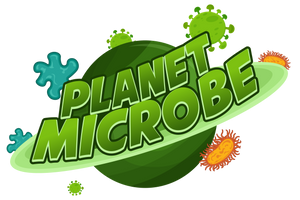This has got to be one of the most famous microbes of all time. The granddaddy of microbes. May we present Giant Microbes Penicillin Penicillium Chrysogenum.
Alexander Fleming probably discovered the most important discover of all time. He left a dirty petri dish out for the weekend and when he returned, voila, we had Penicillin. And what would we have done without that awesome and important find. Well, billions of us would have died by now for starters.
FACTS: Technically, all that penicillin does is to inhibit the enzyme transpeptidase in gram-positive bacteria preventing the crosslinking of the peptidoglycan polymers and impairing the generation of cellular walls. But that is enough to change the world!
It is commonly known that Scottish scientist Alexander Fleming discovered the antibacterial effects of Penicillium (from the Latin for paintbrush, Penicillium the mould produces penicillin the antibiotic agent) in 1928. He returned to his lab after a long-weekend and noticed that the growth of Staphylococcus aureus bacteria in a petri dish he had forgotten to clean was constrained.
What is less well known is that Penicillium’s special aptitudes had been noticed by a French medical student named Ernest Duchesne in the late 1890’s – and indeed, that the properties of moulds had attracted the attentions of a number of scientists in the proceeding decades. In fact, the ancient Egyptians and Chinese rubbed mouldy breads and soybean curbs on skin infections thousands of years ago!
Fleming was never able to isolate the penicillin agent, and it was not until World War II, when the hope of treating injured soldiers spurred antibiotic research, that Howard Florey and Ernst Chain managed to do so. However, not all strains of Penicillium produce penicillin equally well (or at all). Commercial production of the miracle drug was limited until an exceptionally productive strain of Penicillium was discovered on a mouldy cantaloupe melon from a market in Peoria, Illinois.






